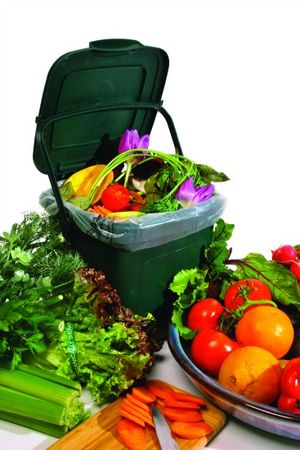
Sewers are designed to dispose of very specific things: water, toilet paper and human waste. The drains that connect your home to the main sewer are only about four inches wide. When other things are flushed down the toilet or drain - such as wipes, oil and grease, or other disposable products - this can create sewer blockages and backups. Blockages and backups can cost thousands of dollars to repair and pose a risk to public health and the environment.
Homeowners are responsible for issues that occur in their sewer pipes. We all share the cost in taking care of the public system.
By following the tips on this page, you can help protect your pipes from clogs, backups and other expensive problems.
What Not to Flush
Your wastewater system is only designed to handle a few basic things: water, human waste and toilet paper. Flushing anything else can mean big problems for your home sewer pipes, and even the public system.
Keep these common sewer culprits OUT of your toilet (or sinks):
- Baby wipes, disinfectant wipes, and so-called "flushable" wipes
- Diapers
- Facial tissues
- Napkins and paper towels
- Sanitary napkins and tampons
- Condoms
- Toilet bowl scrub pads or “Swiffer” type pads
- Wash cloths, towels, rags, clothing or any cloth items
- Dental floss
- Sheet plastic or plastic of any kind
- Egg shells, nutshells, coffee grounds or any food items
- Fats, oils or grease
- Hair
Follow these best practices to keep your sewer system in good shape.
Stop using the kitchen sink and garbage disposal for grease and food scraps.
Vegetable and meat scraps, salad dressing, rice, butter, cooking oils, and many other foods quickly deposit grease and solids that can build up in pipes over time and eventually block a sewer line.
Scrape and wipe dishes first to keep grease out of your sink and dishwasher.
Before washing, use a paper towel or spatula to remove food waste from plates and pans into your yard waste container.
Start recycling your food waste with a free food scrap recycling container!
- Bellevue residential customers: call Republic Services at 425-452-4762 to request your free kitchen caddy.
- Bellevue multifamily customers: contact recycle@bellevuewa.gov to discuss setting up composting service for your complex or to request compost containers.
- Keep the mess down by using compostable bags in your container.
Pour used cooking oil or grease into a container to cool and solidify.
Place container in the garbage. Recycle large amounts of used cooking oil by placing in a labeled container and calling Republic Services for pickup.
Know where your sewer line is located.
If you don't know, call 425-452-4187 for assistance. Although the city does not perform locates on private property, we will provide whatever information is available.
Do not plant trees and shrubs near the sewer line.
Roots often creep into the sewer pipe and over time cause a blockage. If trees or shrubs have caused a problem in the past, remove them. "Miracle" root killers rarely work, since roots typically enter the top part of the pipe, and chemicals sit on the bottom.
